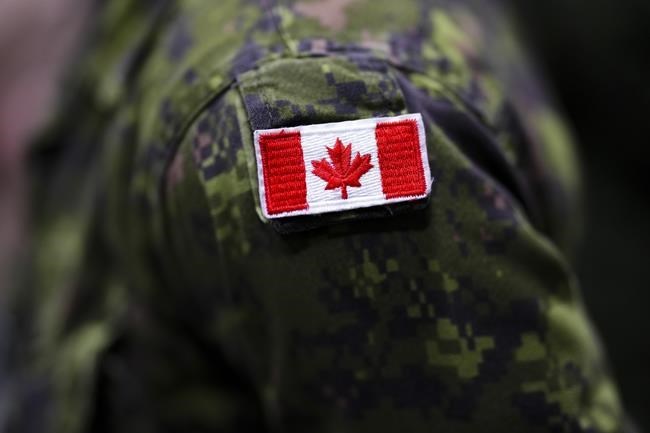TORONTO — Ontario is launching consultations on how to address the barriers that veterans and military spouses face when looking for work.
There are about 150,000 veterans in Ontario, with almost a third of them between the ages of 25 and 54, and an estimated 14,500 military spouses, a consultation paper said, which represent some of the highest of those populations in the country.
The consultations, which close Dec. 27, come as Labour Minister David Piccini announced that Ontario is putting $4.3 million toward four projects to help hundreds of Canadian Armed Forces members transition to civilian life and train for jobs.
"Through their training and service, soldiers, airmen and sailors accumulate a wealth of experience and skills that are invaluable for civilian employers," Piccini said at a news conference.
"Unfortunately, that connection between their skill set and the demands of civilian jobs isn't always obvious, as it should be for a hiring business."
Despite having good employment outcomes on average, veterans face a higher percentage of unemployment, the consultation paper said.
"It is crucial to understand these challenges and how they prevent or limit the military spouses and veterans from fully participating in the Ontario labour market, and consequently supporting its economic growth," the government wrote in the paper.
About 8,000 military families move to a new province every year, and Ontario is home to six major bases.
"This geographic mobility poses a fundamental challenge to the employment of military spouses as it can disrupt their career progression, making it difficult to establish continuity in employment," the government wrote in the paper.
Military spouses are largely female, and 62 per cent have post-secondary education, with 25 per cent in a regulated profession that requires them to register with a new body in each province, the paper said.
The consultation paper cites a 2017 study that found 70 per cent of military spouses say their careers have been adversely affected by their partner’s military service. Another study found that half of the Ontario military families reported that their financial situation worsened after relocating because of reduced working hours and higher living costs, the government said in the paper.
The projects announced Friday as receiving government funding help veterans prepare for in-demand jobs in fields such as health care, software development, cybersecurity and the skilled trades.
A project by the True Patriot Love Foundation is set to help 130 veterans get jobs in health care, and the other projects are being run by Coding for Veterans, Helmets to Hardhats and the Roland Gossage Foundation, which offers programs in cybersecurity, web development and data science.
The True Patriot Love Foundation is also receiving an additional $1.04 million to improve veterans' access to mental health supports.
This report by The Canadian Press was first published Nov. 10, 2023.
Allison Jones, The Canadian Press
Note to readers: This is a corrected story. An earlier version had an incorrect number for military spouses.

